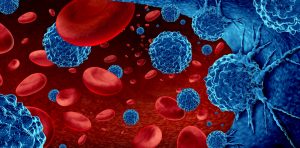NICE wants more Xolair data
pharmafile | November 19, 2014 | News story | Sales and Marketing | Genentech, NHS, NICE, Novartis, UK, Xolair, hives, omalizumab
Novartis has been asked in draft guidance to give NICE more information before the watchdog can recommend its veteran asthma drug Xolair to treat the skin condition hives on the NHS.
Xolair (omalizumab), which was developed by Roche subsidiary Genentech and Novartis, was granted an additional indication to treat chronic hives (spontaneous urticarial) in Europe and the US earlier this year.
NICE is looking at the injection as a treatment, taken once every four weeks, for persistent cases of the raised, itchy rash in people over the age of 12 for whom antihistamines do not work.
In its consultation document, NICE has requested a series of clarifications – with a deadline of 9 December – on Novartis’ evidence after the independent appraisal committee raised some doubts.
“It concluded that there were still questions to be answered about the cost-effectiveness of the treatment,” says Professor Carole Longson, NICE Health Technology Evaluation Centre director. “This is why we have requested more details and analysis from the manufacturer.”
The monoclonal antibody targets immunoglobulin E, which is involved in allergic reactions, and the committee will use the extra evidence to produce further draft guidance.
Xolair brings in more than $600 million per year for asthma, and FiercePharma suggested the hives indication could add an estimated $500 million more.
The drug costs £256.15, with a 24-week course for hives adding up to more than £3,000 without VAT – although it is available via a patient access scheme, the details of which are commercially confidential.
Xolair’s US approval was based on two Phase III trials which showed it significantly reduced itching and the appearance of hives, compared to placebo, among a cohort of over 600 patients aged between 12 and 75 years.
Previously, H1-antihistamines were the only approved treatment for the condition but their effectiveness was limited to around 50% of patients, according to Novartis and Roche.
Adam Hill
Related Content

Novartis shares new data about Fabhalta for IgAN treatment
Novartis has announced new results from a pre-specified interim analysis of its phase 3 APPLAUSE-IgAN …

Genentech’s Columbi meets primary endpoint in phase 3 trial for lymphoma treatment
Genentech, part of the Roche Group, has announced that its phase 3 STARGLO trial has …

NICE recommends migraine treatment for NHS use
The National Institute for Health and Care Excellence (NICE) has shared draft guidance recommending AbbVie’s …








